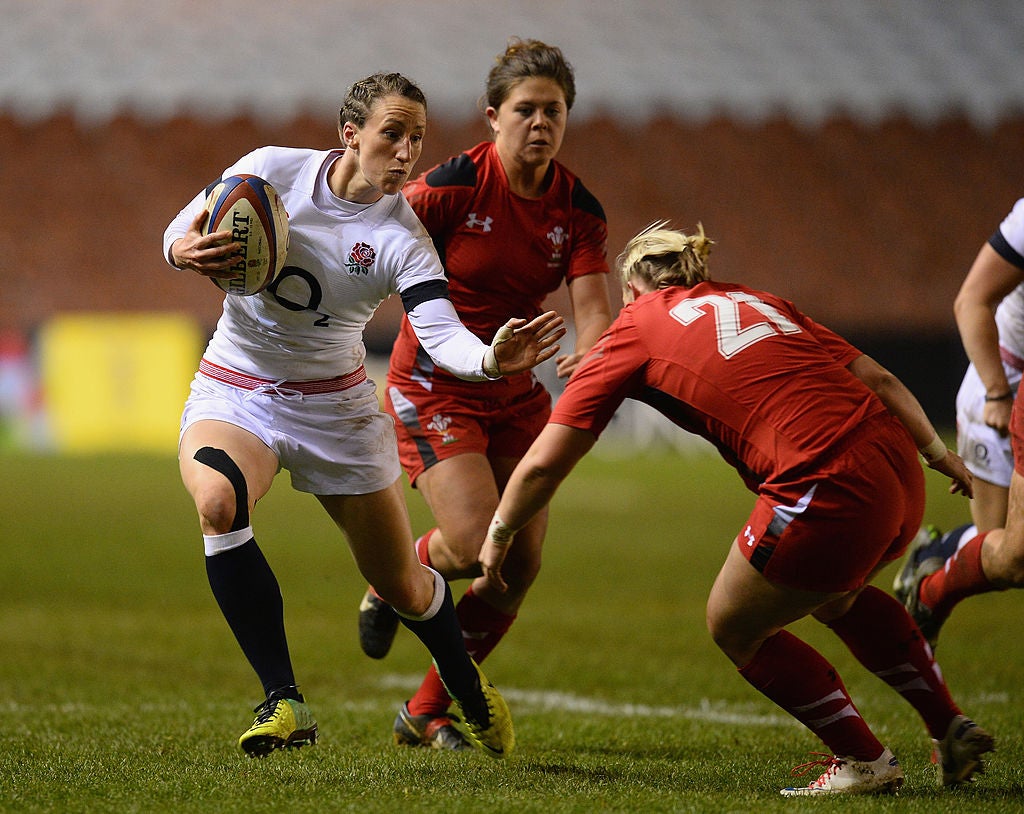Concussions forced me to quit professional rugby – now I’m worried about my future
I fell in love with rugby at the age of 14, played dozens of times for England and won the World Cup. But at my lowest, I sat crying in a dark room because bright lights gave me a headache


Your support helps us to tell the story
From reproductive rights to climate change to Big Tech, The Independent is on the ground when the story is developing. Whether it's investigating the financials of Elon Musk's pro-Trump PAC or producing our latest documentary, 'The A Word', which shines a light on the American women fighting for reproductive rights, we know how important it is to parse out the facts from the messaging.
At such a critical moment in US history, we need reporters on the ground. Your donation allows us to keep sending journalists to speak to both sides of the story.
The Independent is trusted by Americans across the entire political spectrum. And unlike many other quality news outlets, we choose not to lock Americans out of our reporting and analysis with paywalls. We believe quality journalism should be available to everyone, paid for by those who can afford it.
Your support makes all the difference.As a professional rugby player whose career was ended prematurely through concussion, I’m not surprised to see that legal action is being taken against World Rugby.
World Cup winner Steve Thompson is among the high profile players understood to have sent a letter of claim to World Rugby and the governing bodies for English and Welsh rugby after developing early onset dementia as a result of concussions suffered while playing the sport.
In 2015, I wrote an article in which I asked myself if I would do it all over again. If I would put my body and head through the big hits and the injuries. My answer at the time was, yes.
It is now a much harder question to face. I have had post-concussion syndrome (PCS) and I am sure my life will be forever altered from the number of concussions I suffered. PCS is the continuation of symptoms that linger for some time after the concussion, including headaches and dizziness.
I fell in love with rugby at the age of 14, made lifelong friends, played dozens of times for England and, in 2014, achieved World Cup success. But sometimes it’s hard to separate the injuries from the experiences.
Some of my best memories are tournaments with teammates in amazing countries and I’m forever grateful for the opportunity; but some of my worst moments are down to concussion. At my lowest, I sat crying in a dark room because bright lights gave me a headache and loud noises caused me pain. I became irritable, had memory issues and struggled to coach or train. I wouldn’t wish that on any player.
Most of the players seeking legal action will be doing so to ensure a safer future for players and to protect their families and loved ones.
Reading that Steve Thompson has early onset dementia is heartbreaking. At 42, he’s still so young and it is harrowing to read that he can’t remember winning the World Cup in 2003 and would never have taken up the sport had he known the consequences. I’m sad for Steve and I am worried about my own future, too.
Thankfully, when I was younger, the three-week rule applied to concussion, otherwise I’d have happily played the next day. People say that it’s down to the player but I think medical staff and coaches have a responsibility to protect players. We’ve all been the player that comes back too early from a knee injury, desperate to play. But the difference is you only have one brain.
When you are caught up in a World Cup or just want to play with your teammates, you don’t think about the risk of dementia, you rely on those in charge around you to put the safest strategies in place.
In hindsight, there have been occasions when I’ve played and I shouldn’t have. Times were different; sometimes my team didn’t even have a coach, let alone medical staff.
The attitude towards concussion has to change. I have seen coaches at low level select players that clearly shouldn’t continue. As a coach, I’ve taken a player off and we went down to 14 because he took a head knock. There are more important things than winning games.
World Rugby should consider its scheduling at elite level and reassess the amount of contact allowed in training. The aftercare for retired players also needs to significantly improve. Like Steve, I developed anxiety post retirement, which was linked to the concussions. I’d get anxious about social situations in case I got a headache; I’d feel sick at the thought of forgetting my words during coaching. I got to the point where I just accepted that if I had a busy week I’d get a migraine. Better psychological care might help ease players back into normal life.
Rugby needs to learn from this and really take concussion seriously, both for player safety and for the game to continue. In terms of the class action, I believe that a player who has put his or her body on the line for the game and has had their future earnings impacted should receive compensation.
Katherine Merchant has 58 caps for England and now commentates for the BBC and Sky



Join our commenting forum
Join thought-provoking conversations, follow other Independent readers and see their replies
Comments